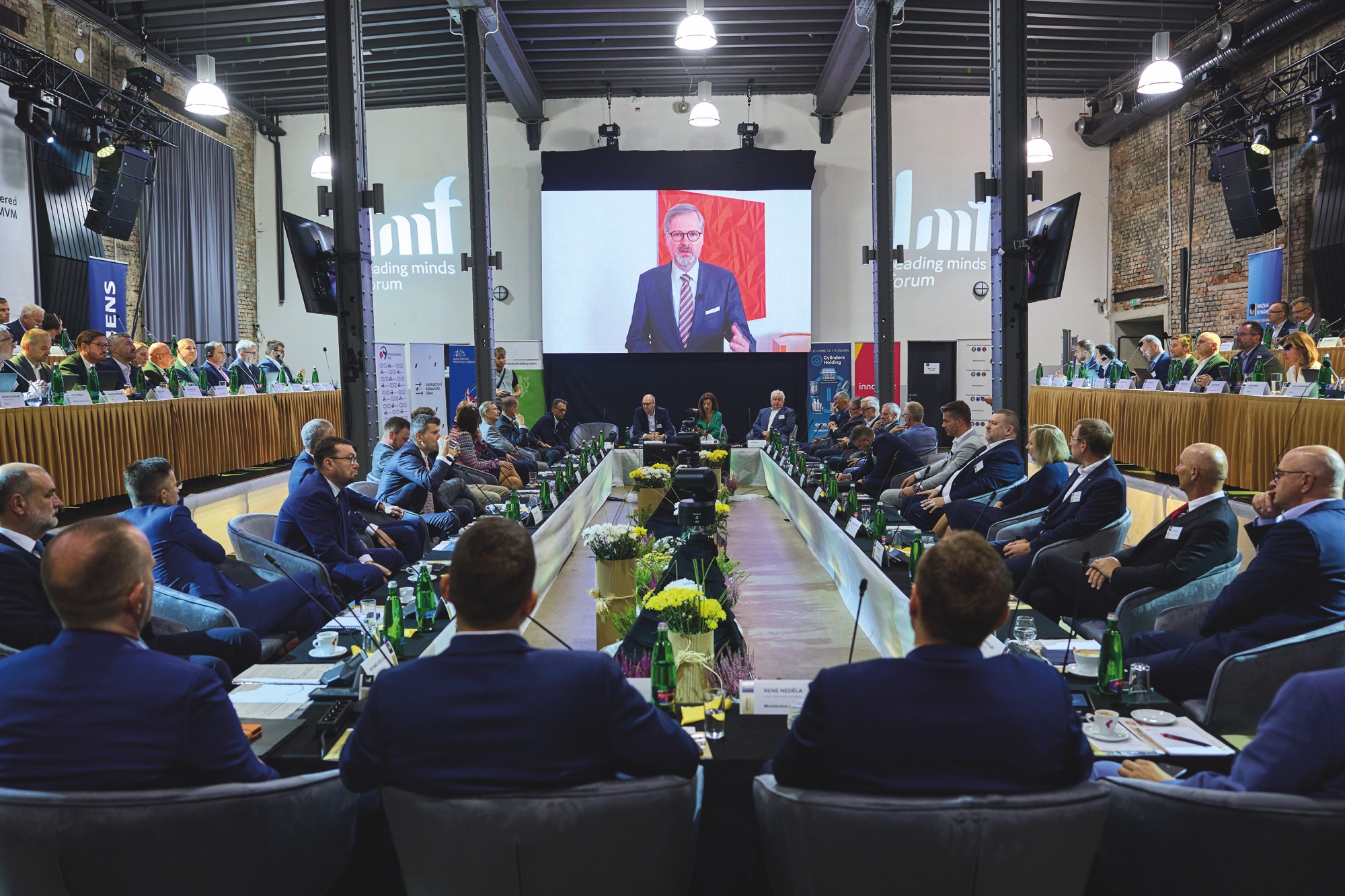
View of the conference hall at the Brick House in Ostrava
Text: Martina Hošková and M. Zisso; Photo: Archive
Ostrava hosted an expert conference on the theme of “Divided Energy Revolution”, focusing on issues related to the future of European and domestic energy. The main topics were the elections to the European Parliament and the related green policy of the new European Commission, the medium-term outlook for the domestic energy industry, security of electricity and gas supply, and community energy and legislation in the area of electricity storage, aggregation, and flexibility.
The Leading Minds Forum is an expert international energy conference, organized by the consulting firm DDeM, aiming to discuss how the energy industry is likely to evolve in the coming years.
The main topics discussed by the participants of the annual meeting of the Leading Minds Forum were: Energy transition and modernization in light of decarbonization targets, decentralization and restructuring of the generation mix, promotion of the investment environment, and the transformation of the domestic heating sector.
Representatives of more than 50 industrial and energy companies joined government and public administration representatives to discuss current and future capacity needs, upcoming actions, and new business opportunities.
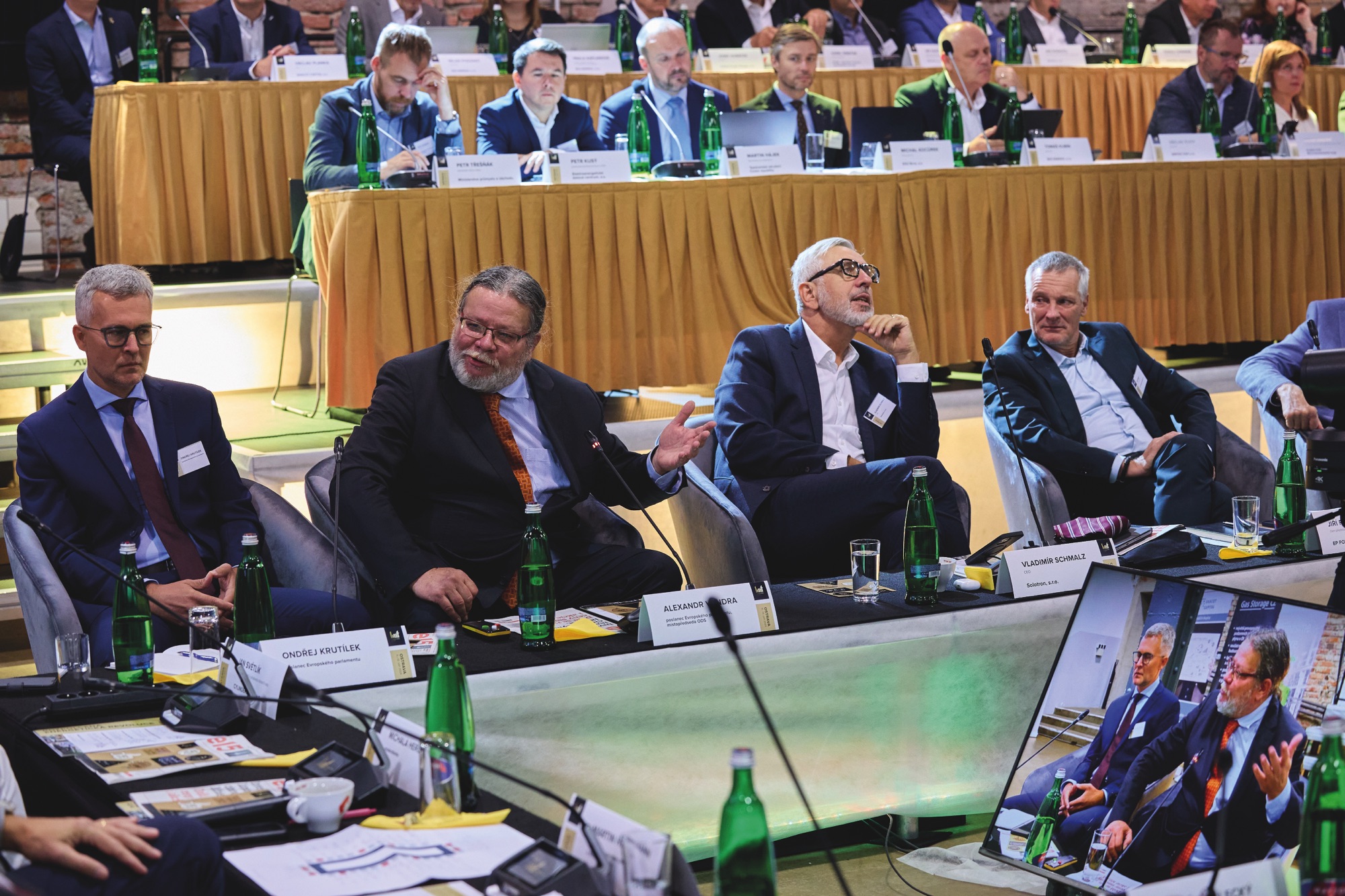
From left: Ondřej Krutílek and Alexandr Vondra, Members of the European Parliament, Vladimír Schmalz, Member of the Supervisory Board of Pražská plynárenská, and Jiří Feist, Member of the Board of Directors of EP Power Europe
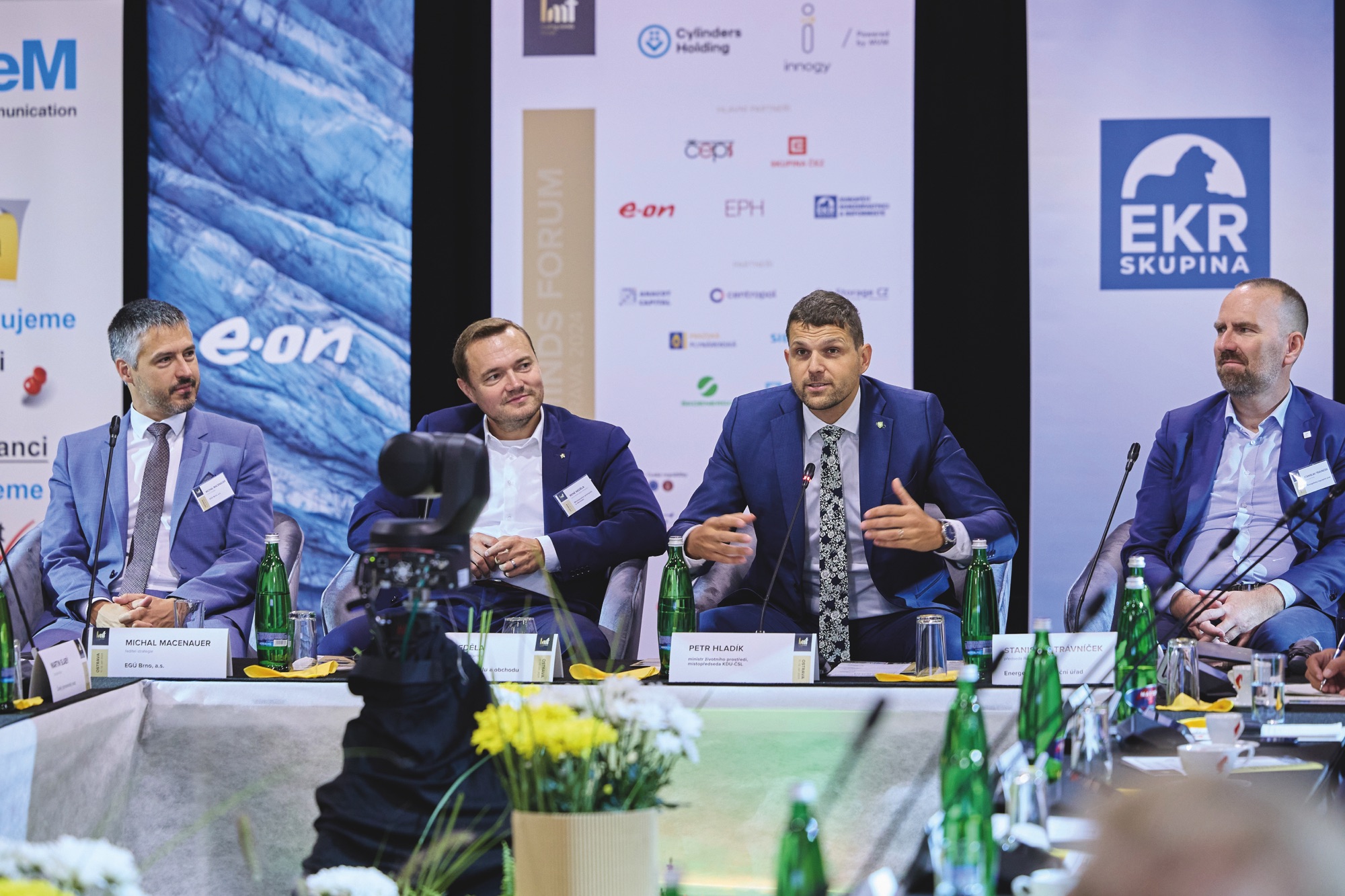
From left: Michal Macenauer, Director of Strategy at EGÚ Brno, René Neděla, Chief Director of the Energy Department at the Ministry of Industry and Trade, Petr Hladík, Minister of the Environment, and Stanislav Trávníček, Chairman of the Board of the Energy Regulatory Office
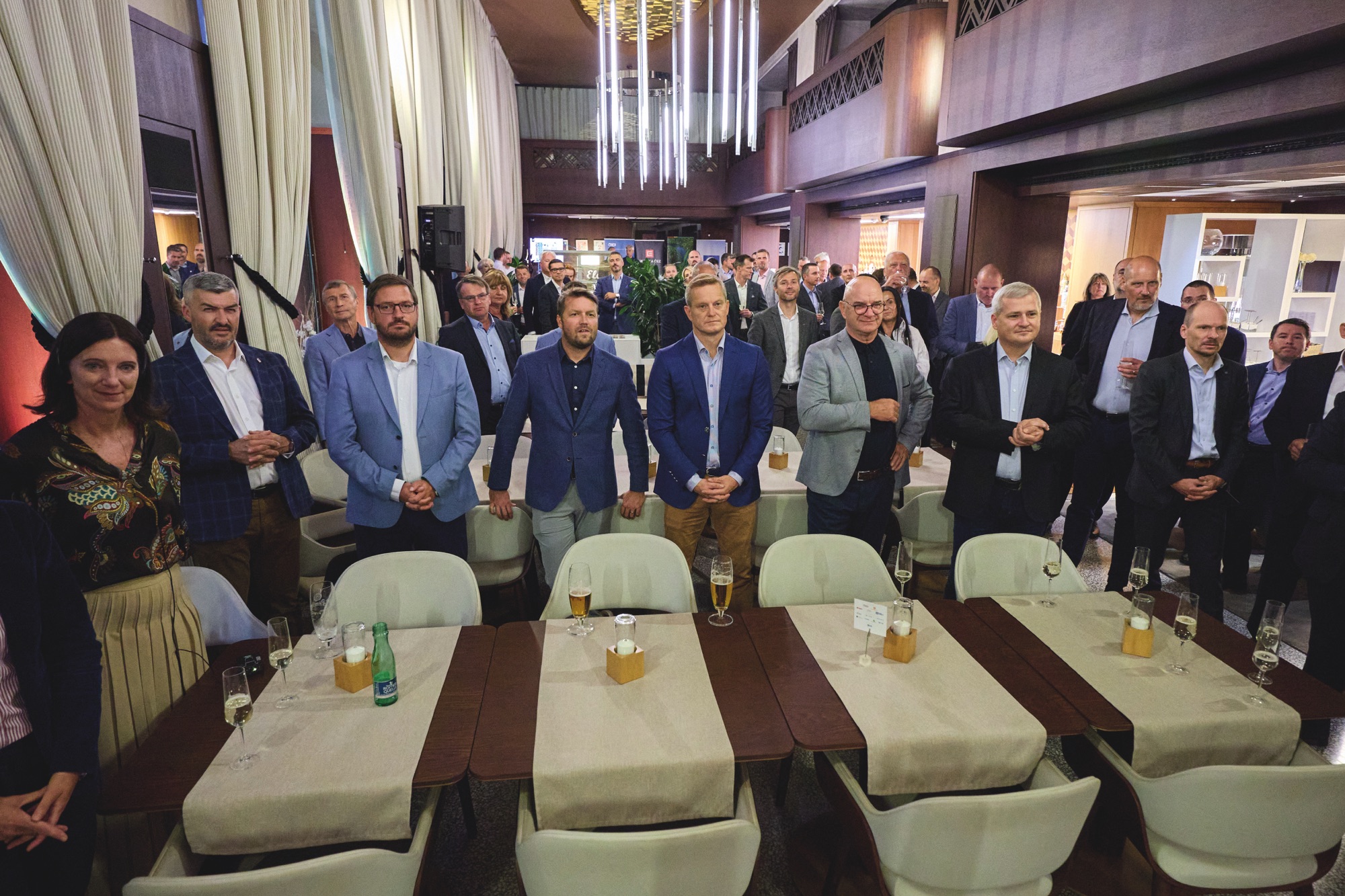
Opening ceremony at the Elektra Café in Ostrava
The patrons of the event were Cylinders Holding and innogy Česká republika. The event was held under the auspices of the Prime Minister of the Czech Republic, Petr Fiala, the Ministry of Industry and Trade, the Minister of the Environment, Petr Hladík, the Energy Regulatory Office, and the Moravian-Silesian Region. The main partners were the ČEPS, ČEZ, E.ON, EP Holding Groups, and the European Conservatives and Reformists Group. The partners were ANACOT CAPITAL, Centropol, Gas Storage CZ, Pražská plynárenská, Siemens, ŠKO-ENERGO, and UCED Group.
For more information about the Leading Minds Forum platform, please visit www.lmf.cz.
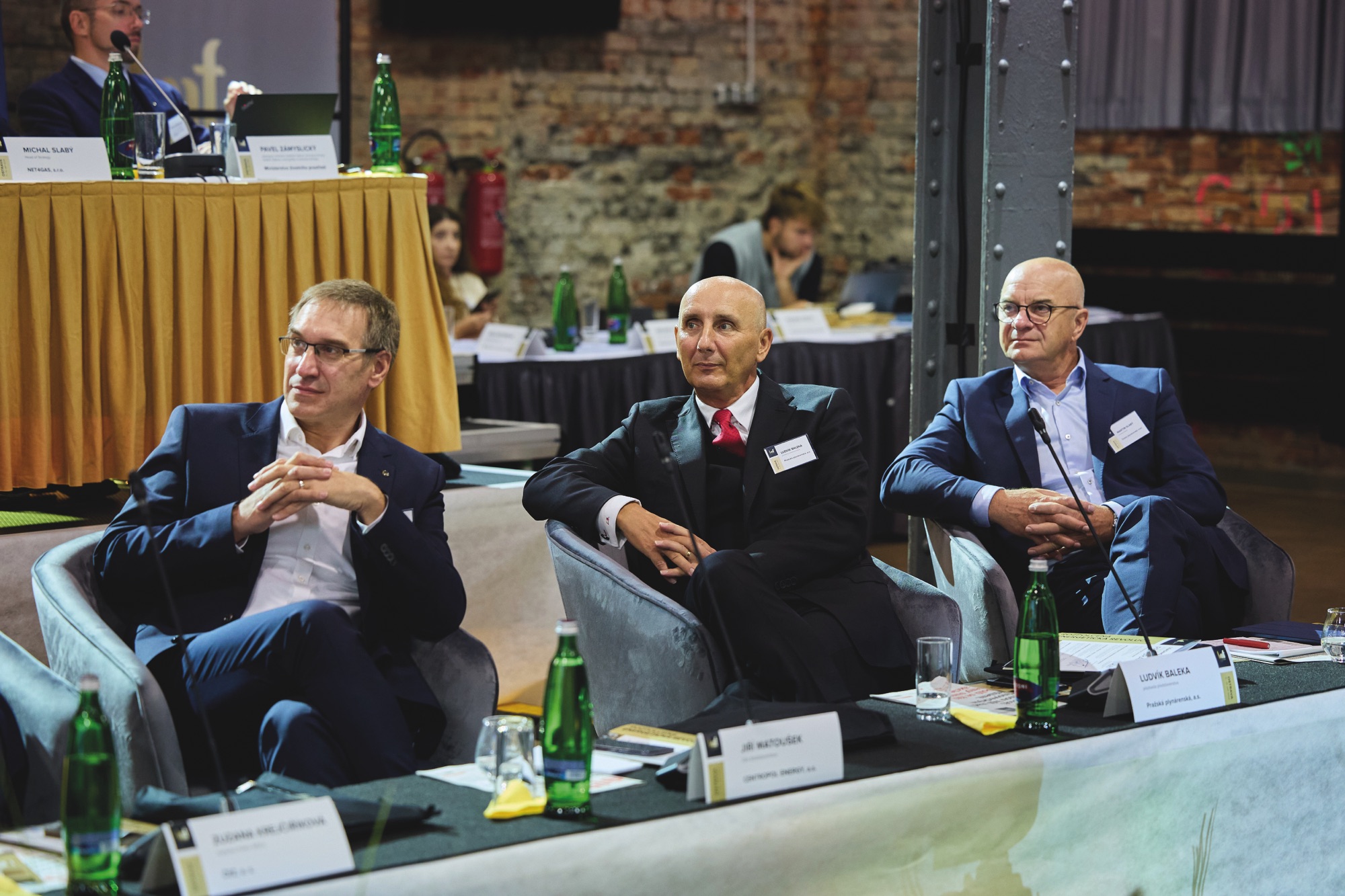
From left: Jiří Matoušek, Member of the Board of Directors of Centropol, Ludvík Baleka, Chairman of the Board of Directors of Pražská plynárenská, and Martin Slabý, Chairman of the Board of the Czech Gas Association
Who were some of the keynote speakers this year?
Alexandr Vondra and Ondřej Krutílek, Members of the European Parliament, spoke about the ambitions of the new European Commission in the area of implementing the green policy, with the goal of achieving carbon neutrality in the European continent by 2050.
Petr Hladík, Minister of Environment, spoke about the reduction of greenhouse gas emissions in the Czech Republic, the further development of renewable energy sources, as well as about energy savings and the reduction of fossil energy – including the complete phase-out of coal mining and burning for electricity and heat generation by 2033.
Jan Dusík, Deputy Director-General for Climate Action at the European Commission, reflected on the actions of the newly constituted European Commission. In his view, it should focus on accelerating decarbonization, as well as proposals to simplify EU legislation with a view towards competitiveness on global markets and the necessary development of energy infrastructure.
Martin Durčák, Chairman of the Board of Directors of ČEPS, mentioned the intensive preparations for the new energy world. This includes, among other things, optimization of cross-border capacity solutions for electricity imports and exchange of balancing services.
René Neděla, Chief Director of the Energy Department at the Ministry of Industry and Trade, explained that, according to some models, the investment needs for decarbonization will amount to almost three trillion CZK by 2030. He also mentioned the crucial amendment to the Energy Law, the so-called Lex OZE III (Renewable Energy Act III), which needs to be passed. This will facilitate electricity storage, and also introduce aggregation flexibility to ensure greater use of renewables.
Zuzana Krejčiříková, Director of Public Affairs, presented further developments of the ČEZ Group in the field of coal-fired power generation, transformation of the heat industry, development of renewable energy sources, and use of nuclear technologies.
Tomáš Varcop, Chairman of the Board of Directors and CEO of innogy Česká republika and innogy Energie, reviewed the current state of the energy market and outlined the future of natural gas against the backdrop of the redirection of natural gas flows following the suspension of supplies from Russia. In general, the consumption of natural gas is expected to increase, but its structure will change. Nevertheless, the Czech Republic cannot do without natural gas.
Since the beginning of August this year, the Electricity Data Center (Elektroenergetické datové centrum – EDC) has been accepting registrations for electricity sharing, which is expected to become a cornerstone of community energy.
Petr Kusý, Chairman of the Board and CEO of Elektroenergetické datové centrum, summarized the current status and introduced the operation of the center.
Claudia Viohl, CEO of the E.ON Czech Group, and Dries Acke, Deputy CEO of SolarPower Europe, expressed a positive view of electricity sharing, also in terms of collective consumption. According to Claudia Viohl, electricity sharing is a new trend that is spreading across Europe, and energy communities are just the beginning of the modern energy era. As Dries Acke reminded us, renewable energy sources have been instrumental in overcoming the recent energy crisis.
The further development of photovoltaic power plants is linked to the need to increase flexibility and to the possibility of storing the generated energy in batteries.

